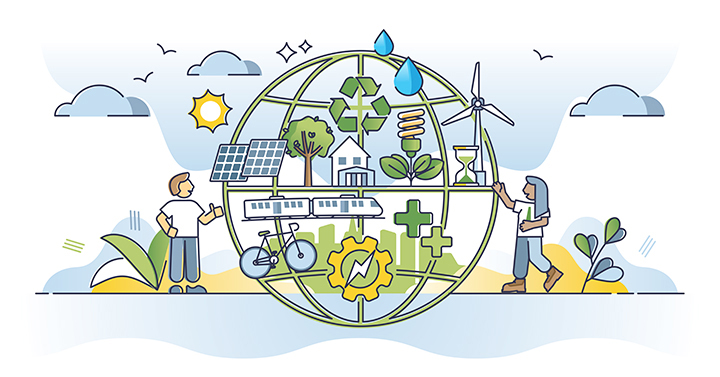Lorem ipsum dolor sit amet, consectetur adipiscing elit. Curabitur eleifend tortor nec augue pretium


At Lancaster & Morecambe College, all the students and staff have access to a sustainability curriculum. They learn about why climate change matters and how to address environmental challenges. We visited its hair and beauty department, where students were learning about safe disposal of chemicals and the circular economy. We also went to the construction department, where students were learning about renewables.
At the Institute for Apprenticeships and Technical Education (IfATE), we’re keen to learn from such innovators so that we can ensure that our standards – created by employers to underpin all apprenticeships and technical qualifications in England – provide the skills our economy needs.
We share IEMA’s belief that we can all learn from one another and consider decarbonisation, energy efficiency, sustainable operating and new green technologies in our work – as exemplified so powerfully at Lancaster & Morecambe College. We also share the belief that all occupations benefit from considering green skills and their greener future.
It is essential that sustainability is baked into the way our organisation thinks and operates. Our sustainability toolkit supports employers to embed sustainability and carbon literacy across all the apprenticeships and technical qualifications we approve.
With employers, IfATE has created around 690 high-quality apprenticeships, 18 T Levels, 175 higher technical qualifications and 1,200 Level 2 and 3 technical qualifications. We have noted an increasing trend in starts for those apprenticeships with the most sustainability content – between 2017-18 and 2022-23, these increased by around 60% to almost 2,400 starts. Early signs indicate that sustainability content is signposted across almost all subject areas for new qualifications, often with extra sustainability content on emerging technologies. This is a promising picture of the widespread priority of sustainability in technical education.
Recent estimates suggest there will be around two million green jobs in the UK by 2030. During the past three years, we have been laying the groundwork to support this transition. Of our approved standards, 30% now have significant green content, which can be filtered by our Occupational Maps, such as Level 7 sustainability business specialist and Level 4 corporate responsibility and sustainability practitioner, both in the business and administration route.
"Early signs indicate that sustainability content is signposted across almost all subject areas for new qualifications"
We have been working with industry to identify the skills needed for these green jobs. Many of the roles identified are in industries experiencing skills shortages, such as construction and engineering. We have also committed to working with IEMA, the Chartered Institute of Ecology and Environmental Management and others to develop the new technical education products needed to train people into ecology and environmental planning regulation roles.
Technical education can also support people to reskill or upskill as their industries evolve to deliver net zero. Apprenticeships allow you to earn as you learn, so they are particularly powerful for encouraging people to train or retrain. Other options include boot camps and shorter courses and qualifications, which can provide the more flexible, bite-sized technical training needed to catalyse a greener career. Visit bit.ly/Skills-for-life for further details.
As well as ‘greening’ long-standing standards such as domestic electrician, IfATE has introduced new standards such as the low-carbon heating technician. Vaillant UK, in partnership with Derby College Group, has been one of the first to recruit a cohort of these new apprentices, all aged 16-19, in an industry that faces the challenges of an ageing workforce.
At IfATE, our equity, diversity and inclusion toolkit ensures that our training products play their part in closing the representation gap in certain industries to ensure they can draw from the widest talent pool in future.
Delivering on our net-zero and nature recovery ambitions will come back to having the right people and skills. At IfATE, we believe that apprenticeships and technical education should be at the heart of meeting this challenge.